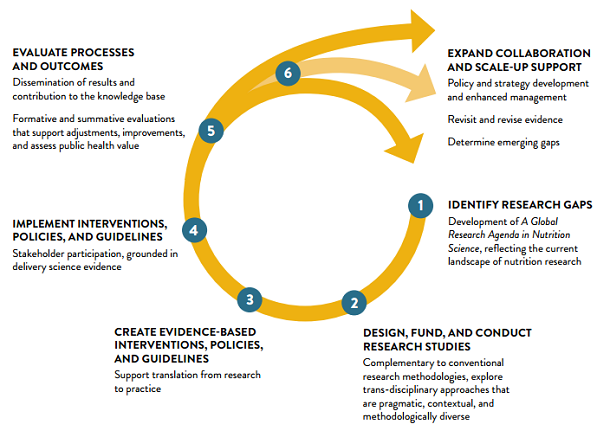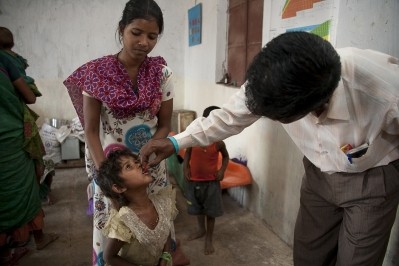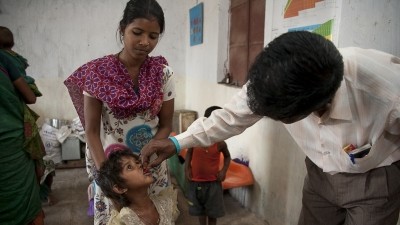'A critical time for nutrition': New report outlines priorities to address malnutrition

The report, led the New York Academy of Sciences, in partnership with The Mortimer D. Sackler Foundation is the culmination of a two-year process to accelerate global commitment, cooperative work, and funding to uncover and implement scientific and evidence-based solutions to malnutrition.
The 'unprecedented' alliance behind the report, known as 'A Global Research Agenda for Nutrition Science (2013)', is made up more than 50 nutrition experts from the World Health Organisation, leading NGOs, and university academics and public health experts.
“Nutrition is integral to some of the most severe global challenges of our time. The shrewd application of science to understanding the complexities of human nutrition helps establish the maps that guide us as we move forward," said David Nabarro, Special Representative of the UN Secretary General for Food Security and Nutrition.
"This Agenda, being developed by The Sackler Institute and WHO, in conjunction with many other scientists and practitioners worldwide, should serve as a basis for the application of science to develop solutions for the critical issues in nutrition and development," Nabarro said. "It is bound to be an ever-growing Agenda—and ever-changing Agenda—because that is how science is.”
The collaboration identified three focus areas, concluding with the identification of critical knowledge gaps in nutrition science:
- environmental and societal trends affecting food and nutrition;
- unresolved issues of nutrition in the lifecycle; and
- delivery of intervention and operational gaps.
"These research gaps are intended to support and guide the research community and stakeholders in the field of nutrition towards focusing on pressing research needs," concludes the report.
Collaboration
By collaboratively building on the agenda set out in the report, stakeholders — including researchers, funders, implementation specialists, and policy makers — have the potential to change the global nutrition landscape; ultimately tipping the scales from malnutrition to optimal nutrition, said the New York Academy of Sciences in a release.
"This is a critical time for nutrition," said Dr. Mandana Arabi, founding executive director of The Sackler Institute. "With billions of dollars in new funding recently committed during the pre-G8 'Nutrition for Growth' event, there is a strong need for high-level, coordinated, and collaborative research to provide the evidence base for country-level program implementation."
"By identifying and filling research gaps and then applying this knowledge to create evidence-based interventions, the global nutrition science community can ensure that available funds are used efficiently and effectively, thereby achieving real and lasting impact."
An ongoing process
More a quarter of the global population are affected by malnutrition (characterised by both under- and over-nutrition) in both developed and developing countries.
"Malnutrition is a risk factor for mortality and morbidity across the lifecycle and contributes to suboptimal cognitive development in children and lower productivity in adults," says the report.
"While this Agenda successfully does what the organizations and experts involved set out to accomplish —it is in no way an end-point. Rather, this Agenda serves as a necessary starting point for a larger process: A cycle to fill research gaps and turn new knowledge into practice and policy to optimize nutrition."
The report states that the initial research agenda is intended to 'kick-start' a research to practice cycle which draws on the work of nutrition science.
The research cycle as outlined by the report: A Global Research Agenda for Nutrition Science (2013)Nutrition science researchers convened at The Sackler Institute for Nutrition Science at the New York Academy of Sciences on September 26th for a day of special workshops aimed at activating the agenda set out by report.
Further information on the project and collaboration can be found here, while the full report can be found here.

















